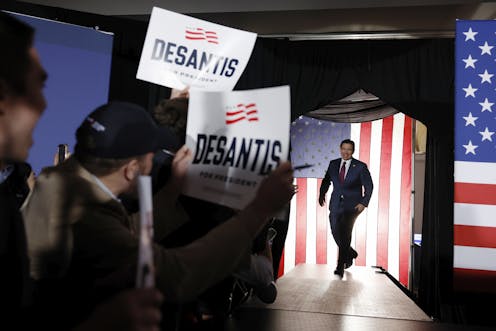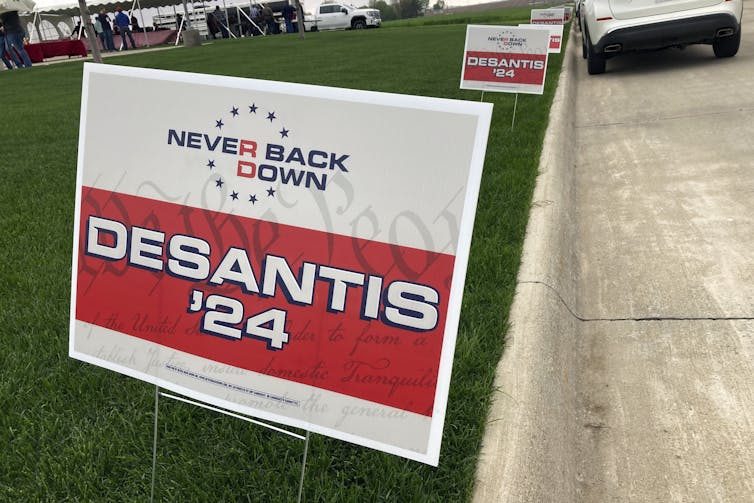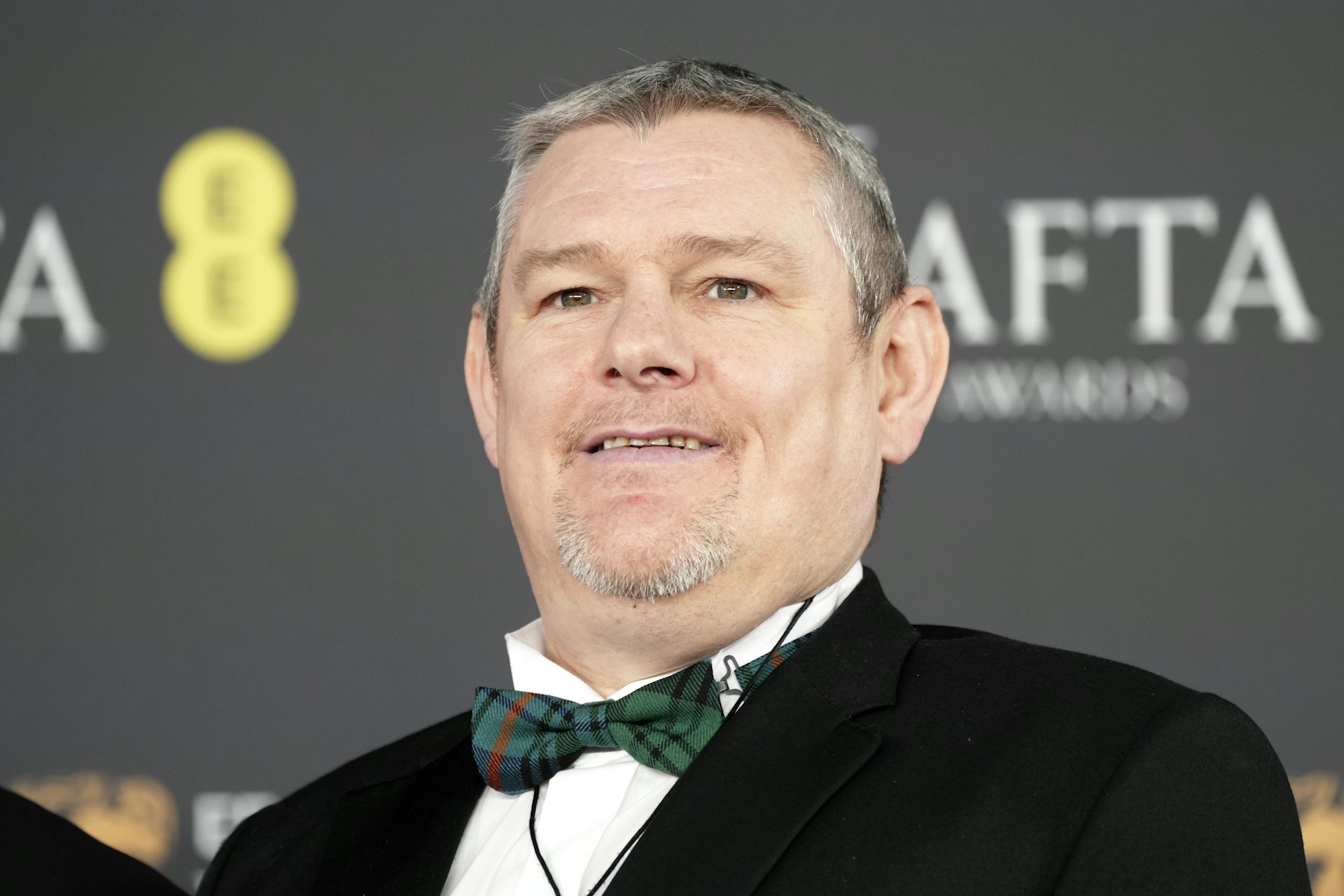DeSantis-linked super PAC broke new ground in pushing campaign finance rules in Iowa in support of a
In Iowa, the Ron DeSantis super PAC Never Back Down seemed intent on mocking the dividing line federal regulators set between campaigns and the PACs that support them.

Never Back Down, the Ron DeSantis super PAC, played an outsized role in the Iowa caucuses campaign of the Florida governor. Its impact on the results, in which DeSantis came in second to former President Donald Trump, will likely remain an open question.
But one thing is sure: It mocked the already weak regulatory framework governing money in campaigns.
A PAC, or political action committee, is a group that is formed to support a candidate by raising and spending money on various activities; it is not supposed to coordinate with the candidate it supports, nor should it be controlled by that candidate.
Super PACs have been a force in caucus politics since 2012. That year featured the first nomination cycle after the U.S. Supreme Court in the Citizens United decision opened the floodgates for unregulated contributions and spending by outside groups. The only limits currently imposed are that super PACs can’t contribute directly to federal candidates’ campaign funds, and they can’t coordinate with campaigns. Since 2012, super PACs have spent freely on advertising, dominating broadcast airwaves in 2016 and 2020.

In the 2024 Iowa caucuses campaign, the DeSantis-backing super PAC staked out some new territory by largely funding the candidate’s ground game, recruiting and training organizers in Iowa and sending them out early to engage Iowa Republicans face-to-face.
But the new territory didn’t stop there. Never Back Down appeared to disregard that ban on coordination with the campaign. Super PACs and campaigns have developed methods to allow them to coordinate while preserving the image of independence. Yet, strangely, Never Back Down and the campaign seemed determined to make their coordination transparent.
The super PAC boldly posted online its memo laying out a proposed strategy for the candidate before the first GOP debate in August. The intent was never perfectly clear, but it succeeded in sending advice to the campaign.
Never Back Down appears to have helped pay for the candidate’s air travel, according to The Washington Post.
The super PAC has recruited donors to contribute directly to the campaign. It sponsored candidate events where it picked up the food tab for registered attendees. The candidate arrived on the bus with the can’t-miss “Never Back Down” slogan plastered on the side. And the super PAC touted that the candidate’s wife went door to door with Never Back Down canvassers.
In December 2023, the Campaign Legal Center, a nonpartisan campaign finance watchdog group, filed a complaint to the Federal Election Commission, charging that the campaign and the super PAC engaged “in an illegal coordination scheme.” A DeSantis spokesman called the charges “baseless.”
This might not be the biggest story to come out of Iowa. But it sends a notable and disturbing message to federal candidates, Democratic and Republican: Don’t let the law stand in your way.
Barbara A. Trish does not work for, consult, own shares in or receive funding from any company or organization that would benefit from this article, and has disclosed no relevant affiliations beyond their academic appointment.
Read These Next
Taboo tics like shouting curses and slurs are uncommon in Tourette syndrome − but people who have th
Obscene language tics, called coprolalia, don’t reveal what people with Tourette’s think and feel.…
Artists and writers are often hesitant to disclose they’ve collaborated with AI – and those fears ma
Whether they’re famous composers or first-year art students, creators experience reputational costs…
Honoring Colorado’s Black History requires taking the time to tell stories that make us think twice
This year marks the 150th birthday of Colorado and is a chance to examine the state’s history.






